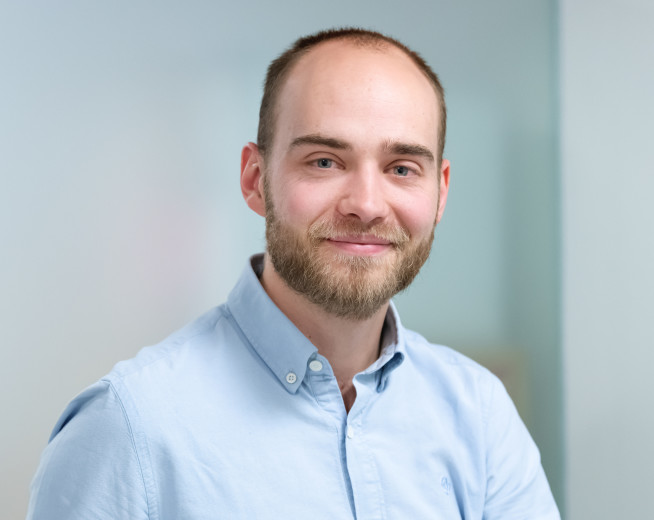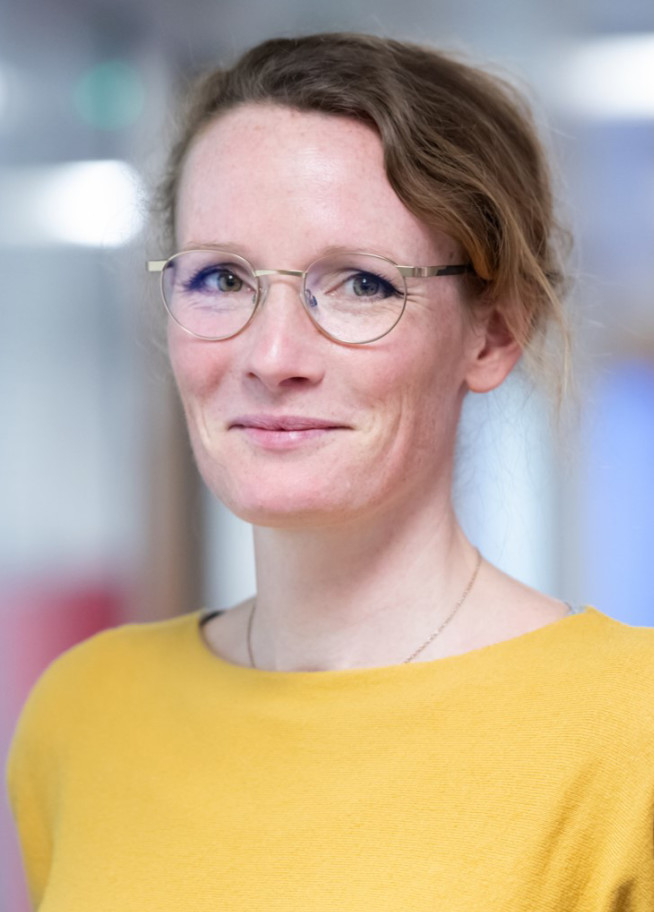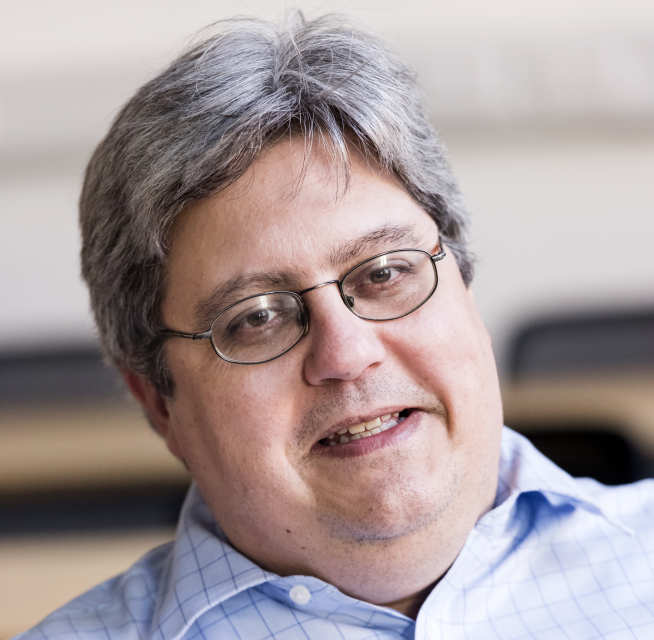The Centre for Advanced Structural Ceramics (CASC) is a major focus for ceramics research in the Department. The experimental facilities cover processing and characterisation and we have particular expertise in thermo-mechanical testing including nanoindentation and outstanding thermal analysis capability to > 2000oC. Much of this research is carried out in collaborative projects with industrial and academic partners from the UK, Europe, USA and Japan.
We have pioneered research on lowering the operating temperature and cost of SOFCs, on their mechanical reliability and on the mechanisms of electrode reactions. This has resulted in facilities (unique within Europe) for isotopic studies of surface exchange kinetics and diffusion in oxides. Surface chemistry of ceramic materials can now be accessed through state-of-the-art low energy ion scattering (LEIS) providing unparalled information on atomic structure of functional ceramics that is essential for device development.
We are also examining ceramic systems for aerospace applications (the thermal protection system for the next generation of space shuttle type vehicles) which involves testing and characterising non-oxide composites at temperature approaching 4000oC. Much of our work is underpinned by multiscale modelling enabling us to improve understanding of ceramic materials and predict new materials having improved properties for a wide variety of applications.
Projects
Research projects within Ceramics and Glasses include:
- Solid Oxide Fuel Cells (SOFCs)
- Nuclear fuels
- Ultra high-temperature composites
- Graphene and graphene-based materials
- Bioceramics
- Ceramics for body and vehicular armour
Network and centres
| |
Centre for Advanced Structural Ceramics (CASC) CASC started in July 2008 and has since become an industrial consortium to continue long-term and fruitful relationships between CASC-associated academics and the UK’s industrial structural ceramics community. |
Network and centres
| |
Centre for Advanced Structural Ceramics (CASC) CASC started in July 2008 and has since become an industrial consortium to continue long-term and fruitful relationships between CASC-associated academics and the UK’s industrial structural ceramics community. |
Ceramics and Glasses Staff
- Dr Florian Bouville
- Professor Finn Giuliani
- Dr Sam Humphry-Baker
- Professor John Kilner
- Dr Katharina Marquardt
- Professor Eduardo Saiz Gutierrez
- Dr Sivaprakash Sengodan
- Professor Stephen Skinner
- Professor Luc Vandeperre

Dr Florian Bouville is Senior Lecturer in the Department of Materials at Imperial College London.
Professor Finn Giuliani is Reader within the Structural Ceramics Centre in the Department of Materials.
His research interest is in small scale plasticity particularly of brittle materials.
>> Read more about Finn
| Research project title | Funding body | Start date |
|---|---|---|
| Silicon doped boron carbide a lightweight impact resistant material | Engineering and Physical Science Research Council (EPSRC) | Dec 2013 |
| Silicon stabilised boron carbide armour (SiBA) | Defence Science and Technology Laboratory (DSTL) | Oct 2013 |
-002--tojpeg_1543838033416_x2.jpg)
Dr Sam Humphry-Baker is a Imperial College Research Fellow in the Department of Materials.
His research focusses on the processing-structure relationships of energy materials and evaluating their performance in harsh operating environments..
>> Read more about Sam
--tojpeg_1441961709792_x2.jpg)
Professor John Kilner is B.C.H.Steele Professor of Energy Materials, former head of the Department of Materials and former Dean of the Royal School of Mines.
Professor Kilner is primarily interested in studying the exchange and diffusion of oxygen in oxide ceramic materials for applications in devices such as fuel cells, oxygen separators and sensors, and has been instrumental in the development of isotopic exchange-SIMS techniques to study these phenomena. Much of his work is now centred upon the development of the Intermediate Temperature Fuel Cell, Solid Oxide Electrolysers and Lithium batteries. He is now working on an improved understanding of surface and interfacial phenomena, which is crucial for further development of these devices. In 2012 John was awarded the IOM3 Platinum medal for his outstanding services to the discipline.
>> Read more about John

Dr Katharina Marquardt is a Senior Lecturer in the Department of Materials at Imperial College London.
Professor Eduardo Saiz Gutierrez is Chair in Structural Ceramics in the Department of Materials. He is the director of the Centre for Advanced Structural Ceramics (CASC). Eduardo is currently the coordinator of BioBone, an Intial Traning Network in the field of bioceramics funded inthe FP7 framework with nine academic and industrial partners.
His research interests include the development of new processing techniques for the fabrication of ceramic-based composites, in particular hierarchical composites with bioinspired architectures, the study of high temperature interfacial phenomena such as spreading, the fabrication of graphene-based structures and composites and the development of new materials to support bone tissue engineering.
>> Read More about Eduardo
| Research project title | Funding body | Start date |
|---|---|---|
| ATI - CEMTEC - Environmental degradation of SiC/SiC ceramic matrix composites (CMC) | Rolls-Royce plc | Jan 2018 |
| Development and evaluation of in-plane fracture toughness of SIC based ceramic matrix composite | Rolls-Royce Plc | Oct 2017 |
| H2020 MSCA RISE AMITIE: Additive Manufacturing Initiative for Transnational Innovation in Europe | Commission of the European Communities | Mar 2017 |
| MAPP-EPSRC Future Manufacturing Hub in Manufacture using Advanced Powder Processes | Engineering and Physical Science Research Council (EPSRC) | Oct 2016 |
--tojpeg_1549363173202_x2.jpg)
Dr Sivaprakash Sengodan is an Imperial College Research Fellow in the Department of Materials. His research focusses on development of electrode and electrolyte materials for energy conversion and storage devices, especially for solid oxide fuel cells, protonic ceramic fuel cells and metal air batteries
Professor Stephen Skinner is Professor of Materials Chemistry. He is a Fellow of the Institute of Materials, Minerals & Mining, a Fellow of The Royal Society of Chemistry and also a Fellow of the Higher Education Academy.
His research interests are in materials for new energy technologies and is primarily concerned with the chemical and physical properties of solid oxide fuel cell electrolytes and electrodes and encompasses the electrical and structural characteristics of materials.
He has extensive experience of the use of neutron and synchrotron facilities to undertake in-situ high temperature characterisation of new materials and in relating the structural characteristics of materials to their electrochemical properties
>> Read more about Stephen
| Research project title | Funding body | Start date |
|---|---|---|
| in operando Analysis of the Electrochemical Process Governing Solid Oxide Fuel Cell Anode Operation and Degradation | Ceres Power Ltd | Dec 2018 |
| Platform Grant: "Understanding the critical role of interfaces and surfaces in energy materials" | Engineering and Physical Science Research Council (EPSRC) | Oct 2017 |
| Solid Oxide Interfaces for Faster Ion Transport (SOIFIT) | Engineering and Physical Science Research Council (EPSRC) | Jul 2017 |

It is with great sadness that we received the news of the recent death of Professor Luc Vandeperre, our dear colleague, Director of Undergraduate Studies and Associate Head of Department for Education.
He made a tremendous contribution to our Department and will be painfully missed by many.
If you would like to leave a Condolence message, please visit our online condolence book at Forever Missed.
_____________________________________________________
Professor Luc Vandeperre is a Professor of Structural Ceramics in Department of Materials at Imperial College London.
He has long experience in processing as well as in measuring and understanding the mechanical properties of ceramics and cements. As a member of the Centre for Advanced Structural Ceramics (CASC), he currently works on a range of ceramic as well as cement related projects spanning processing hard ceramics for armour, tailoring mullite for micro-turbine applications, thermal shock of and conversion from cements of refractories, ultra high temperature ceramics for aerospace, re-use of ashes from industrial processes and cements for nuclear waste encapsulation.
